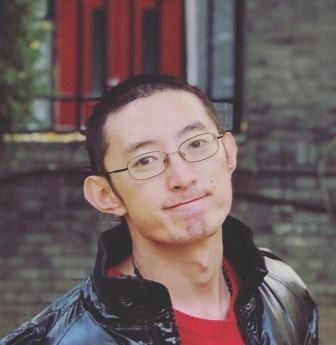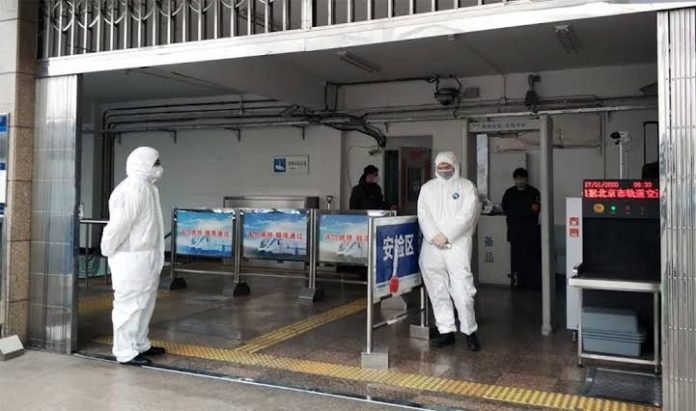The passing of Dr. Li Wenliang, one of the doctors who blew the whistle on initial outbreak of Coronavirus and was therefore silenced by local police for “spreading rumors”, sparked online outrage towards the Chinese communist regime, which covered up the dangerous virus outbreak for maintaining social stability but missed an incredible opportunity to prevent the virus from spreading further.
After human-to-human transmission was confirmed to the public, the Chinese government responded quickly in an attempt to stop the virus by imposing heavy-handed and highly-restrictive measures, including an unprecedented lockdown of the entire central Hubei province and delaying resumption of work after the Chinese New Year holiday. Despite these efforts, this public health crisis has developed into a political crisis for the top leadership. The death of Dr. Li from the virus, to which he had alerted the public, has become a watershed event signaling that the public sentiment has escalated from distrust and indignation towards the government into increasing demand for freedom of speech.
Therefore, how to manipulate the narratives surrounding the death of Dr. Li is undoubtedly a challenging task for the regime’s wisdom. So far, the party-state has adopted three strategies to dissipate, direct and divert public outrage.
First, stand with Dr. Li and share anger with netizens. State-run media are showing some resonance with social media users, paying tribute and even demanding an apology. The nationalist tabloid Global Times praised Dr. Li’s professionalism and considered the initial punishment of Li for speaking out as “a sample for social reflection”. Its editor-in-chief, Hu Xijin, went further by calling on local government to apologize. “Those who infuriated the people will finally pay the price”, wrote Hu in an article published on the WeChat official account. Guangming Daily and Xinhua Daily Telegraph (affiliate of Xinhua News Agency) also issued commentaries sharing sadness with the public.
Although the propaganda apparatus in authoritarian China usually serves as the mouthpiece of the regime, they occasionally follow the public opinions to demonstrate their solidarity with the people. Now that the tension rises between the public and officials, this strategy is intended to de-escalate instead of fueling the flames. When the sorrows are heard and grievances are shared, the public may believe that their opinions matter and thus may give up resorting to more radical steps.
Second, tolerate criticism of local leaders but censor “freedom of speech” posts. Scholarly research has showed that authoritarian China allows negative online comments about some leaders and policies to some extent unless the online discussion has potential to stimulate collective activity and social mobilization that may threaten the communist rule. This theory is validated in these practices of censors following Dr. Li’s death. Immediately after official announcement of Li’s passing, Sina Weibo, the Chinese equivalent of Twitter, was overwhelmed by users’ posts lambasting police’s stigmatization of Dr. Li as “rumor spreader” and local officials’ handling of Coronavirus outbreak. Some were cursing local officials like mayor of Wuhan with nasty words. But these harsh comments are tolerated and maintained for a while. Nonetheless, when online users expanded their demands to “freedom of speech” that is guaranteed in the Constitution but is denied by the party-state, the censorship apparatus stepped in to intervene, removing tons of posts appealing for “freedom of speech” and urging nightly “whistle-blowing” activity to remember Dr. Li.
The authoritarian regime does tolerate some criticism but limit it in a framework. On the one hand, social network users are allowed to lash out at local government or officials but not the central government or top leadership. On the other hand, Internet users are permitted to be critical of specific practices or policies but are forbidden to be skeptical of its fundamental political system. This is why, in this case, harsh words towards local police and officials can survive censorship but posts urging or showing “freedom of speech” and collective activity are deleted.
Third, divert attention to fighting the virus. While state-sponsored media appear unanimously to share sorrows of the general public for the passing of Dr. Li, these propaganda organs are endeavoring to rebuild his image and identity more as an epidemic fighter than as a “silenced whistleblower”. All of the three commentaries (from Global Times, Xinhua Daily Telegram and Guangming Daily, respectively) start with lamenting the doctor’s passing but all finish with calling for national solidarity and focusing on fighting the war against the epidemic as “unfinished cause” of Dr. Li. This strategy not only represents the philosophy of turning sorrows into strength, and putting aside trivial sentiment for a “big picture”, but also fits well with China’s propaganda magic of transforming individual loss into a national cause.
Dr. Li’s death is landmark episode in ongoing Coronavirus outbreak that signals escalation of online rhetoric from voicing discontent and resentment to demanding “freedom of speech”. Despite the cracks on the authoritarian rule, street demonstration won’t materialize due to high infectivity of the virus. In this sense, the regime’s propaganda means apparently achieved its ends, for the state and the people are currently in the same boat as both want to end the epidemic as soon as possible.
The views and opinions expressed in this article are those of the author and do not necessarily reflect the official policy or position of The Geopolitics.

Keyu Chen served as financial translator for Goldman Sachs, J.P. Morgan and Deutsche Bank. He holds M.A. in international journalism and communication from Beijing Foreign Studies University. He’s interested in political communication, comparative politics and international relations.


